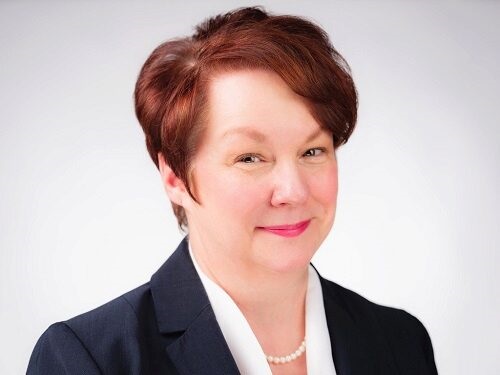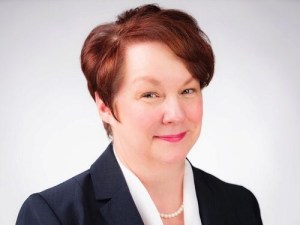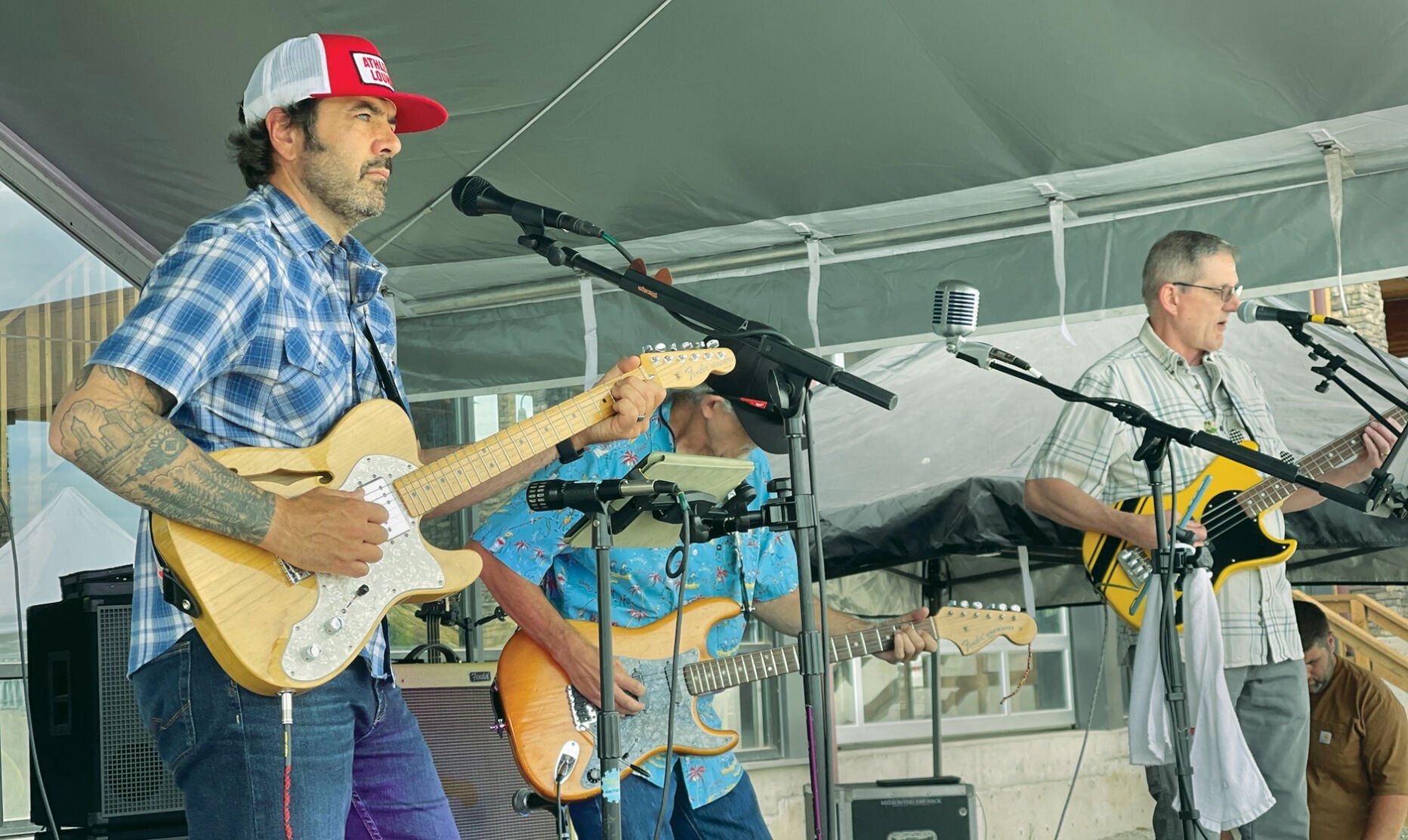‘Building a relationship of trust’: Rep. Sue Rieke Smith reflects on sudden appointment to Oregon House
Published 10:59 am Wednesday, July 2, 2025

- Rieke-Smith (Submitted photo)
Following a dramatic conclusion to the 2025 legislative session, Wilsonville Spokesman reporter Mac Larsen talked with Oregon House District 26 Rep. Sue Rieke Smith before the three-day Fourth of July holiday weekend began.

Rieke-Smith (Courtesy photo)
Rieke Smith was appointed to the seat in House District 26 by the Clackamas, Washington and Yamhill county commissions after the seat was vacated by Courtney Neron Misslin, D-Wilsonville. Neron Misslin was appointed to represent Senate District 13 after the death of state Sen. Aaron Woods.
Rieke Smith represents the Wilsonville, Sherwood, King City and Bull Mountain communities — a little more than 70,000 Oregonians.
Rieke Smith was sworn in at the very beginning of June and was a participant in the end of the 2025 legislative session. In 2026, she has the option to run for a full two-year term in the Oregon House.
Prior to joining the Oregon House of Representatives, Rieke Smith served as superintendent of the Tigard-Tualatin School District for six years, after working as a teacher, English-language specialist, principal and administrator. Prior to working in education, Rieke Smith was a traveling nurse working in intensive care units around the country.
This interview was edited for clarity.
Wilsonville Spokesman: How’re you doing this afternoon?
Rep. Sue Rieke Smith: I’m doing very well, Mac. I so appreciate you reaching out to us and look forward to our conversation today.
Spokesman: As an Oregonian, I’m sure it was quite surreal to be in the Capitol voting for legislation, especially during the tail end of the session. Did you ever think this was going to be part of your career?
Rieke Smith: Politics and legislative processes have been part and parcel of my life, both my personal life as well as my professional life. My husband is a lobbyist of 47 years at the federal level, and so we have lived the life of how policy moves or doesn’t move, how you work with your legislators, and how you work with, in his case his clients, in terms of moving pieces that would help them with their work. In education, for anyone who believes that politics is not a part of education, it is part and parcel, in the sense of the policies that we set, how we educate students, how we spend our dollars that the state gives us and the federal government gives us. When policies are working well, you want to thank your legislators for that, and when they are not working well, you want to bring it to their attention and work with them to solve that problem.
Spokesman: You’re a third-generation Oregonian and before you were a superintendent, you worked in health care. You would have met a lot of Oregonians from all walks of life, schools, hospitals. You were in Oregon and Washington?
Rieke Smith: My husband’s work took us to the Tacoma area. We met in college at Pacific Lutheran University, and then his work, regulatory work, the office was based in Tacoma. So my work was in terms of trauma and critical care, and then went on to work with Pierce County Health Department and served the entire county, doing maternal child care, working with Indigenous tribes. It actually formed for me the importance of access to quality care and the importance of understanding families and meeting them where they are in terms of their culture and the cultural norms, and understanding the intersection between education and access to a full plate and access to a solid roof over your head — how important all of those things were relative to the quality of life that everyone should have the opportunity to live.
Spokesman: Do you feel like there’s something inside health care that also pushed you towards education, or is that something you had been interested in before?
Rieke Smith: It was really twofold. Part of it is, is, when you are doing trauma care, when you’re in public health, you see how important education is in the sense of understanding, how do I care for myself? How does my body work? What choices should I be making in terms of foods or can I afford to make in terms of food? How do I access public support and help when I need it? I became very involved in my children’s school and when we moved back to the Tualatin area, I began to think about the fact that I needed to get back, I wanted to get back into the workforce. I was volunteering in our youngest daughter’s kindergarten class and the teacher there said, ‘You’re really good at working with kids and educating kids. Have you ever thought about being a teacher?’ So that led to a conversation, and I got my master’s in teaching and started at the fifth grade level.
Spokesman: I ask teachers this often: When you were a high schooler, did you ever think you’d be a teacher or principal? What about a legislator?
Rieke Smith: My family was immersed as educators. My father was a university professor of medicine. His next eldest brother was the dean of the law school at The University of Washington. It was an expectation that you were going to college. At that point, I saw myself going to medical school, but it was early on, in the early ‘70s. I was one of the first cohorts of nurses that were coming out with Bachelor of Science versus more of a two-year in-hospital program, which was at that point in time still very much the norm. I certainly saw myself in health care — did not see myself in a Legislature at that point.
Spokesman: How would you describe your whirlwind beginning? What was it like hitting the ground running in Salem?
Rieke Smith: I do need to give nothing but huge kudos to my chief of staff. In terms of the rapidity that comes at you, the variety of issues that you have to deal with — that is not unlike standing knee-deep in an emergency room. It is not unlike running a school district of any given size because issues are coming at you all day long, and they’re rarely connected one to one. You have to basically be able to think, ‘OK, what’s the main issue on this one? I’ve got to hold these other ones here at bay for a few moments while I think through this and think through what my answer is going to be or my next steps need to be.’ The difference is the culture. The difference is: How do I have (a) conversation with my peers now, who don’t know me at all? How do I develop a relationship? I will tell you that my experience was, regardless of which party we were talking to, people were warm and inviting.
Spokesman: Is there anything at the end of the session that you’re really proud of?
Rieke Smith: I wouldn’t want to take credit for anything, because when you’re three weeks there, you know, the best that you can hope to do is to support good processes that are in front of you. So I think I would leave that to Representative (Jules) Walters (House District 37) and Senator Neron Misslin, but I was happy to be a part of the process.
Spokesman: For the Wilsonville community, I think they’re wondering: Is anything going to change, from their point of view, with I-205 and I-5? People have very strong opinions about the transportation changes and strong feelings about ODOT. How are you sort of trying to navigate that moving forward after the session?
Rieke Smith: Again, coming in in three weeks and all that body of work compressing itself into that moment. One of the things I was clear about was what my counties and cities were telling me they absolutely have to have in that package and if it’s not there, we would ask you not to support it. And I stood true to that because it is important to me to serve my counties and the cities and the individuals that they serve. The thing that I really want to be thoughtful about and careful about is the pocketbook, and unfortunately, this problem is a sticky thorn in that regard. We don’t have a sales tax in Oregon, and so we have to raise revenue in other ways that, unfortunately, doesn’t always sound and feel good to the constituents. So it’s about, you know, spending time with them and understanding that and building a relationship of trust over time.
Spokesman: Because you were a superintendent and an educator, what are you excited for when it comes to future opportunities for education policy in Oregon?
Rieke Smith: The governor’s bill, relative to accountability and early literacy, is a step in the right direction and having been a teacher as well as up the ranks to superintendent, I never forgot what it felt like to sit in that classroom and educate kids. What is important to me is that there is accountability relative to the state dollars, and that was something that was a hallmark of my superintendency, both in Springfield and in Tigard-Tualatin. I serve at the pleasure of the speaker and wherever she chooses to place me. I will serve with my best effort. I’m anticipating I may sit on education. If that’s the case, I’ll have an opportunity then to make sure that teachers are getting what they need and the support that they need.





